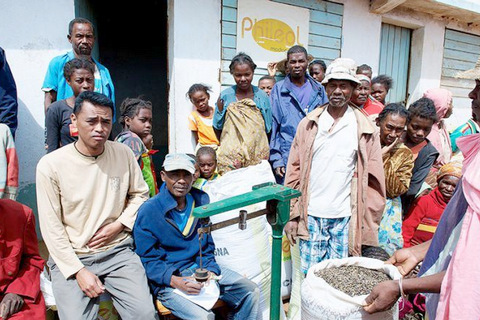PhileoL

PhileoL is a Malagasy company established in the south of the island where it breeds and transforms ricin seeds into oil. After transformation the oil is exported abroad to be used in cosmetic and industry. Phileol brings at stake a strong social and environmental impact while collaborating with more than 700 families to collect and grow the seeds, ensuring them strong revenue and steady employment while the region remains one of the poorest of the island.
With regards to this social project, Phileol has elaborated and signed a Social Code while collaborating with many institutional actors and NGOs like the WWF, the UNPD or else EFA, a local initiative to enhance social improvement in rural areas. Besides, Phileol is also committed in valuating southern rural lands with various projects consisting in clearing and cultivating them.
THE ENTREPRENEURS
Stéphane Philizot is a chemical engineer; he left the international firm in which he was in charge for 15 years of innovation and raw material treatment, persuaded that the enterprise model would work as a development tool, to settle in Madagascar.
Nary Razakasolo combines experience in both oil-making agriculture and audit. He created MAD’OIL, a company that produced and sell essential oils before he co-founded PhileoL where he manages logistics, financial and commercial tasks.
Njaka Ravelomanantsoa is an agronomist who worked for 17 years for private companies, NGO’s and research offices within the rural world. He is now Technical Manager at PhileoL where he supervises the collect and the transformation.
PARTNERSHIP WITH I&P
I&P committed alongside PhileoL
• To finance the purchase of a press
• To undertake missions of technical assistance
• To help building the financial, administrative and accountant structure
KEY IMPACTS
• More than 700 families earn their living on PhileoL seed collect
• 225 000 000 Ariary (65 950 euros) paid to the smallholders to buy the seeds (without any intermediary)
• 26 supervisors trained and operational while 20 farmers have been trained and equipped for seed production
• 272 farmers accompanied to gather and structure their activity
• 38,2 Ha of land cleared including 13,9 ha seeded
• 3500Ha of non-arable lands valued thanks to the seed collecting activity
